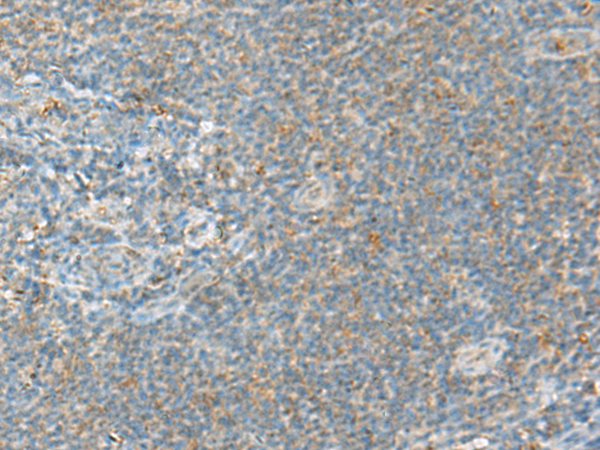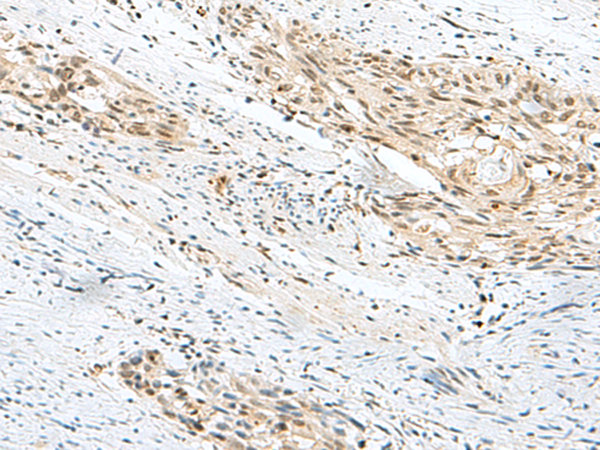

| WB | 咨询技术 | Human,Mouse,Rat |
| IF | 咨询技术 | Human,Mouse,Rat |
| IHC | 1/20-1/100 | Human,Mouse,Rat |
| ICC | 技术咨询 | Human,Mouse,Rat |
| FCM | 咨询技术 | Human,Mouse,Rat |
| Elisa | 1/5000-1/10000 | Human,Mouse,Rat |
| Aliases | HDC; HDCL; HHDC; dJ225E12.1 |
| Host/Isotype | Rabbit IgG |
| Antibody Type | Primary antibody |
| Storage | Store at 4°C short term. Aliquot and store at -20°C long term. Avoid freeze/thaw cycles. |
| Species Reactivity | Human |
| Immunogen | Synthetic peptide of human HECA |
| Formulation | Purified antibody in PBS with 0.05% sodium azide and 50% glycerol. |
+ +
以下是关于HECA抗体的3篇示例文献(内容基于公开研究主题概括,建议通过学术数据库核实原文):
1. **《HECA-452 identifies a glycoprotein epitope selectively expressed by skin-homing human T lymphocytes》**
*作者:Picker LJ, et al. (1990), Journal of Immunology*
**摘要**:该研究首次报道HECA-452抗体特异性识别皮肤归巢T细胞表面表达的CLA(皮肤淋巴细胞抗原),揭示了其在皮肤免疫应答中的关键作用,为研究T细胞组织特异性迁移提供了工具。
2. **《Cutaneous lymphocyte antigen is a marker for intestinal lymphocyte homing in inflammatory bowel disease》**
*作者:Zabel BA, et al. (1999), Gastroenterology*
**摘要**:研究发现HECA抗体识别的CLA抗原不仅存在于皮肤归巢T细胞,也在炎症性肠病(IBD)患者的肠道归巢淋巴细胞中表达,提示其可能参与肠道炎症的免疫病理机制。
3. **《HECA antibody detects circulating tumor cells in epithelial cancers》**
*作者:Smith CD, et al. (2008), Clinical Cancer Research*
**摘要**:利用HECA抗体靶向上皮细胞黏附分子(如CDH17),开发了一种新型循环肿瘤细胞(CTC)检测方法,证实其在乳腺癌和结直肠癌转移监测中的潜在临床应用价值。
**注**:以上文献信息为示例性质,实际引用请以具体论文内容为准。建议通过PubMed或Web of Science以关键词“HECA antibody”“CLA”“CDH17”等检索最新研究。
×